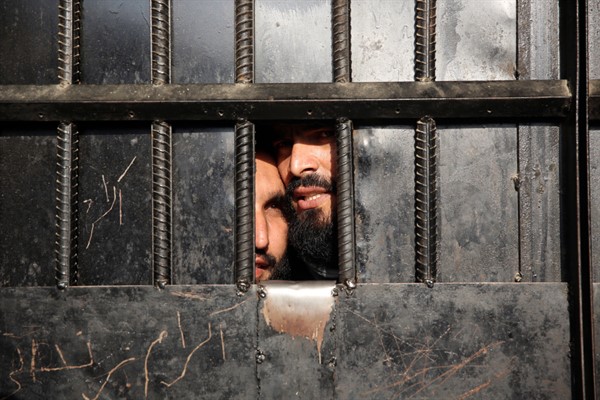On a Tuesday in late October, an Afghan cleric, Sheikh Raheemullah Nangahari, was giving a speech in his madrassa in Peshawar, near Pakistan’s border with Afghanistan, when a blast ripped through the prayer hall, injuring him and killing eight others. It was the latest attack in a deadly rivalry between the Taliban and the Islamic State’s faction in Afghanistan and Pakistan, which calls itself the Khorasan Province. Raheemullah, a senior Taliban official, is believed to have been targeted by the Islamic State because of his work spreading propaganda against the extremist group. In written tracts and speeches, the sheikh has cast the Islamic State’s ideology as heretical and urged all supporters of jihad in Afghanistan to stay loyal to the Taliban.
At first glance, the Islamic State does not appear to be a major player in Afghanistan’s conflict. Once a much bigger threat to both the Taliban and the Afghan government, the group suffered a spectacular reversal in its prospects in 2019 and earlier this year, losing all the territory it held and most of its military capability. Yet it has not completely disappeared. Its Afghan faction continues to use terrorist attacks in urban areas as a way of asserting its continued presence—for example, when it claimed responsibility for the six-hour siege of Kabul University’s campus in November, in which gunmen killed 22 people.
The Islamic State still poses a lingering threat to peace and stability in Afghanistan, so it remains a key consideration for the Taliban, even shaping their priorities and tactics during their ongoing negotiations with the Afghan government and the United States. Ultimately, the rivalry between these groups reflects the Taliban’s enduring motivations: dominating the jihad in Afghanistan and, with it, the country itself.

